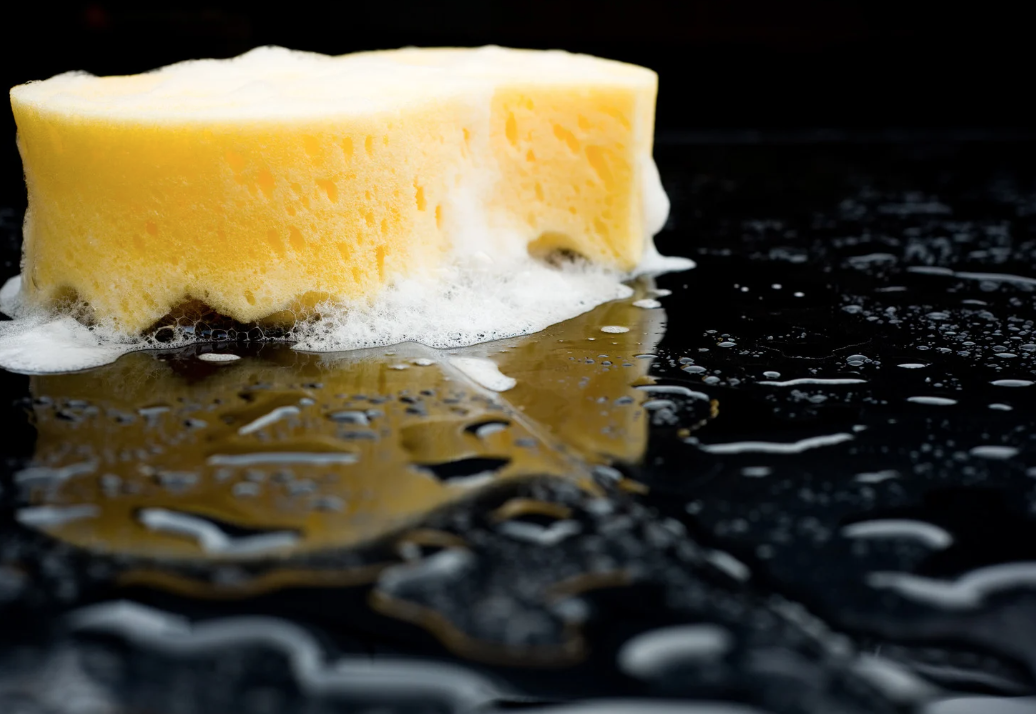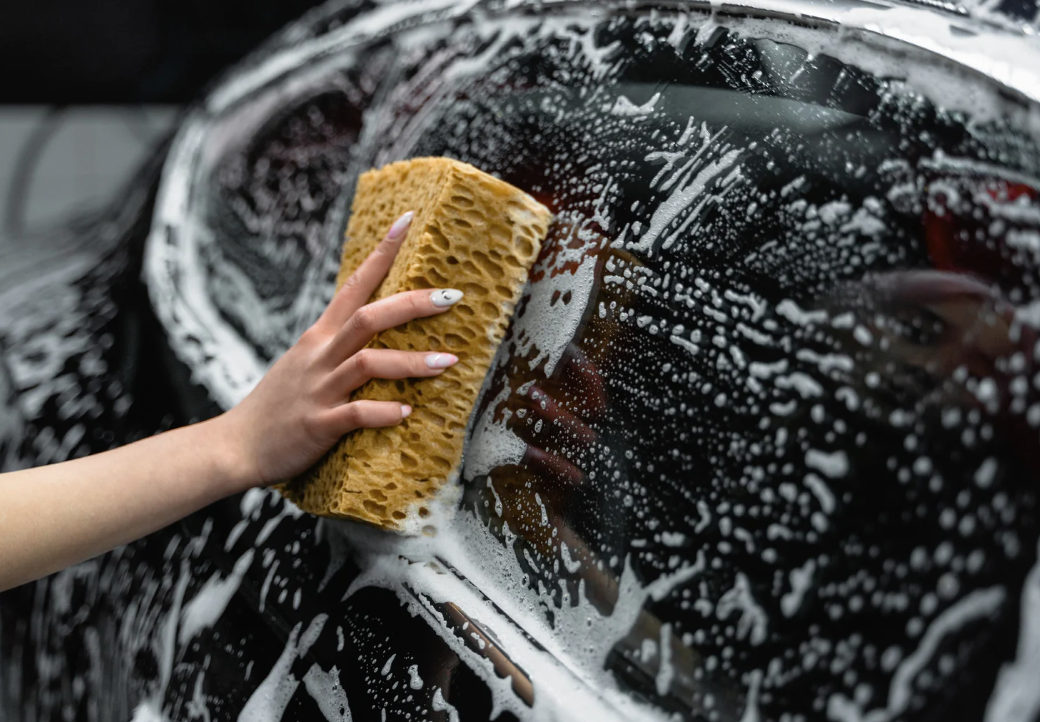The Best Soap for Washing Your Car
Can You Use Hand Soap to Wash Your Car? Is It Okay to Use Dish Soap On a Car?
When it comes to washing your car, the first instinct might be to grab whatever soap is within arm's reach. After all, soap is soap, right? But not all soaps are created equal, especially when it comes to washing your car. Whether you’re considering hand soap, dish soap, or a specialized car wash soap, choosing the right one can make a big difference in your car’s appearance and longevity.
In this post, we’ll explore whether you can use hand soap to wash your car, if dish soap is a viable option, and most importantly, what types of soap are safe and effective for washing your vehicle.
Can You Use Hand Soap to Wash Your Car?
Hand soap is designed to clean your hands, not your car, so it may not be the best option for washing your vehicle. Here's why:
1. Formulation Differences
Hand soap, whether liquid or bar, is typically formulated to remove dirt, oils, and bacteria from human skin. While it might be effective for its intended purpose, it’s not designed for car surfaces. Hand soap often contains moisturizers and other ingredients meant to protect your skin, but these are unnecessary and sometimes even harmful when it comes to your car’s finish.
2. Lack of Lubrication
Car washing soaps are specifically designed to provide lubrication while cleaning, which reduces the risk of scratching the paint when scrubbing. Hand soap, on the other hand, may not provide enough lubrication. As a result, you could inadvertently create swirl marks or micro-scratches on the paint while washing, especially if you're using a rough cloth or sponge.
3. Potential for Stripping Wax or Sealant
Another key consideration is that many hand soaps contain detergents that can strip away wax or sealant on your car’s paint. Wax and sealant are essential for protecting the vehicle’s paint from the elements, and using hand soap could weaken this protection, leaving your car more susceptible to oxidation, dirt, and water spots.
In summary, while hand soap can technically clean your car, it’s not the best choice. It lacks the proper formulation to safely wash your car and could cause damage over time, especially if you use it regularly.
Is It Okay to Wash Your Car with Dish Soap?
Dish soap is another common household cleaner that people sometimes turn to when washing their cars. But just like hand soap, dish soap isn’t ideal for this purpose, and here’s why:
1. Too Harsh on Paint
Dish soap is formulated to remove grease and oils from dishes, but this can be a bit too harsh for car paint. Dish soaps, particularly those with high levels of degreasers, can strip away not only dirt and grime but also protective layers of wax, sealant, or clear coat. This is especially problematic if you regularly use dish soap to wash your car because it can leave your paint vulnerable to scratches and environmental damage.
2. Strips Away Protective Coatings
Car paint is typically protected by layers of wax or sealant, which act as a barrier against water, dirt, and UV rays. Dish soap, however, is designed to cut through grease, which means it’s strong enough to strip away these protective coatings, leaving your car’s finish exposed to the elements. This makes your car more prone to oxidation, fading, and water spots, which can lead to costly paint repairs down the line.
3. Potential for Residue Build-up
While dish soap may do a great job of cleaning your dishes, it can leave behind residue on your car’s surface. Over time, this residue can accumulate, making it harder to clean your car properly in the future. Additionally, this build-up can cause the paint to appear dull and may even create streaks that are difficult to remove.
4. Lack of Proper Lubrication
Like hand soap, dish soap doesn’t offer the same level of lubrication that car wash soap does. This can lead to friction between the sponge or mitt and the car’s surface, which may cause scratches or swirl marks on the paint.
So, while dish soap might seem like a convenient and cheap option, it’s best avoided for washing your car. The potential damage to your paint and the removal of protective coatings can cause more harm than good in the long run.
What Soap Can Be Used to Wash a Car?
Now that we’ve established that hand soap and dish soap are not ideal options, let’s look at the best types of soap specifically formulated for car washing. These are the soaps you should reach for when you want to clean your car safely and effectively:
1. Car Wash Soap
The best and most recommended option for washing your car is a dedicated car wash soap. Car wash soaps are formulated to clean your car’s exterior without damaging the paint, striping wax, or leaving behind any harmful residue. These soaps often contain mild detergents that are effective at lifting dirt, bird droppings, tree sap, and other contaminants, while still being gentle on your car’s finish.
Foam-based car wash soaps: These create thick, lubricating foam that helps prevent scratching while washing. Foam helps the soap lift dirt away from the surface of the car, reducing the chance of scratching the paint.
pH-balanced car wash soaps: These soaps are designed to clean effectively without affecting the wax or sealant on your car. The pH balance ensures the soap is neither too harsh nor too mild, making it safe for regular use.
Popular brands like Meguiar's, Chemical Guys, Adam's Polishes, and Turtle Wax all offer high-quality car wash soaps that are designed to protect your car’s paint while providing a thorough clean.
2. Foam Cannon Soap
If you have a foam cannon or foam gun for your pressure washer, you’ll want to use a soap specifically designed for foam applications. These soaps create a thick foam that clings to the surface, helping to break down dirt and grime before you touch the paint with a mitt or sponge. Foam cannon soaps often contain lubricants that provide a barrier between the car’s paint and the washing tool, minimizing the risk of scratches.
3. Two-Bucket Method Soap
For those who prefer the two-bucket method (a method for minimizing dirt and grit on the car while washing), any high-quality car wash soap will do. The two-bucket method involves using one bucket for the soapy water and another for rinsing the wash mitt or sponge, helping to reduce the chance of scratching the car with trapped dirt.
4. Waterless or Rinseless Car Wash Soap
If you're in a situation where water is scarce, or you're looking for a quick and easy way to clean your car, waterless or rinseless car wash solutions are a great alternative. These soaps are formulated to lift dirt and grime from your car’s surface without needing water or rinsing. They are typically used with microfiber towels and are great for quick touch-ups.
Popular examples of rinseless wash products include Optimum No Rinse and Meguiar's Rinseless Wash & Wax.
Conclusion: Choose the Right Soap for Your Car
In short, while hand soap and dish soap may seem like convenient and readily available cleaning options, they are not suitable for washing your car. These soaps can strip away protective coatings, damage your paint, and even leave behind unwanted residues.
For the best results, always choose a car wash soap that is specifically formulated for automotive use. Whether you’re using a foam cannon, a two-bucket method, or a waterless wash, selecting the right soap ensures that your car remains clean, protected, and looking its best for years to come.
If you're looking for a long-term solution that preserves the appearance and health of your car, investing in a good-quality car wash soap is worth it. Your car’s paint job will thank you!




